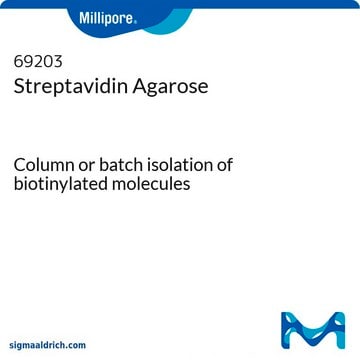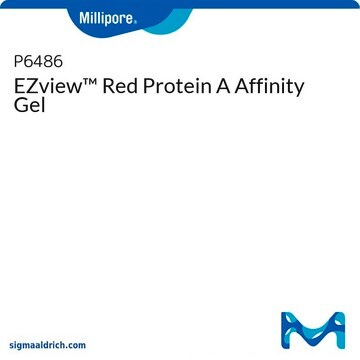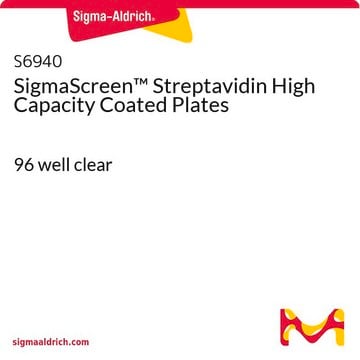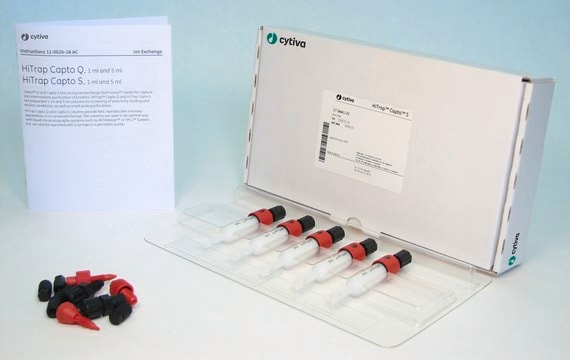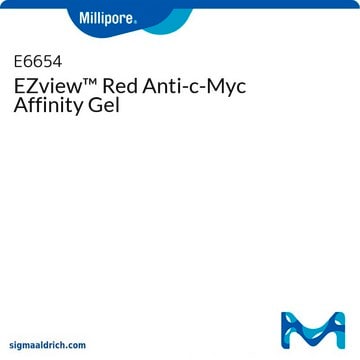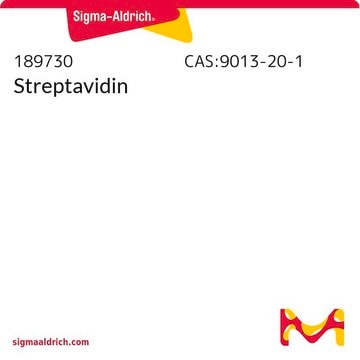E5529
EZview™ Red Streptavidin Affinity Gel
About This Item
Produits recommandés
Forme
suspension
Durée de conservation
1 yr
Technique(s)
western blot: suitable
Matrice
4% agarose
pH
7.2
Capacité
~10 μg(biotin per ml of packed gel)
Conditions d'expédition
wet ice
Température de stockage
2-8°C
Catégories apparentées
Description générale
cyanogen bromide-activated 4% agarose beads. It is designed to capture (pull-down) the biotinylated target molecules, such as proteins, peptides, antibodies, nucleic acids, lectins, receptors and ligands.
Application
Caractéristiques et avantages
- Increased visibility - Red color reduces risk of incidental aspiration
- Improved recovery of target protein by reduced accidental loss
- Higher reproducibility - More consistent yields
Forme physique
Informations légales
Code de la classe de stockage
10 - Combustible liquids
Point d'éclair (°F)
Not applicable
Point d'éclair (°C)
Not applicable
Certificats d'analyse (COA)
Recherchez un Certificats d'analyse (COA) en saisissant le numéro de lot du produit. Les numéros de lot figurent sur l'étiquette du produit après les mots "Lot" ou "Batch".
Déjà en possession de ce produit ?
Retrouvez la documentation relative aux produits que vous avez récemment achetés dans la Bibliothèque de documents.
Les clients ont également consulté
Contenu apparenté
Tests, réactifs et protocoles permettant d'étudier les interactions protéines/protéines in vitro par différentes méthodes : pull-down ou GST pull-down, purification par affinité en tandem (TAP pour "Tandem Affinity Purification") et co-immunoprécipitation.
Investigate in vitro protein-protein interactions with pull-down assays, utilizing affinity, GST pull-down, TAP, and co-immunoprecipitation methods.
Notre équipe de scientifiques dispose d'une expérience dans tous les secteurs de la recherche, notamment en sciences de la vie, science des matériaux, synthèse chimique, chromatographie, analyse et dans de nombreux autres domaines..
Contacter notre Service technique
